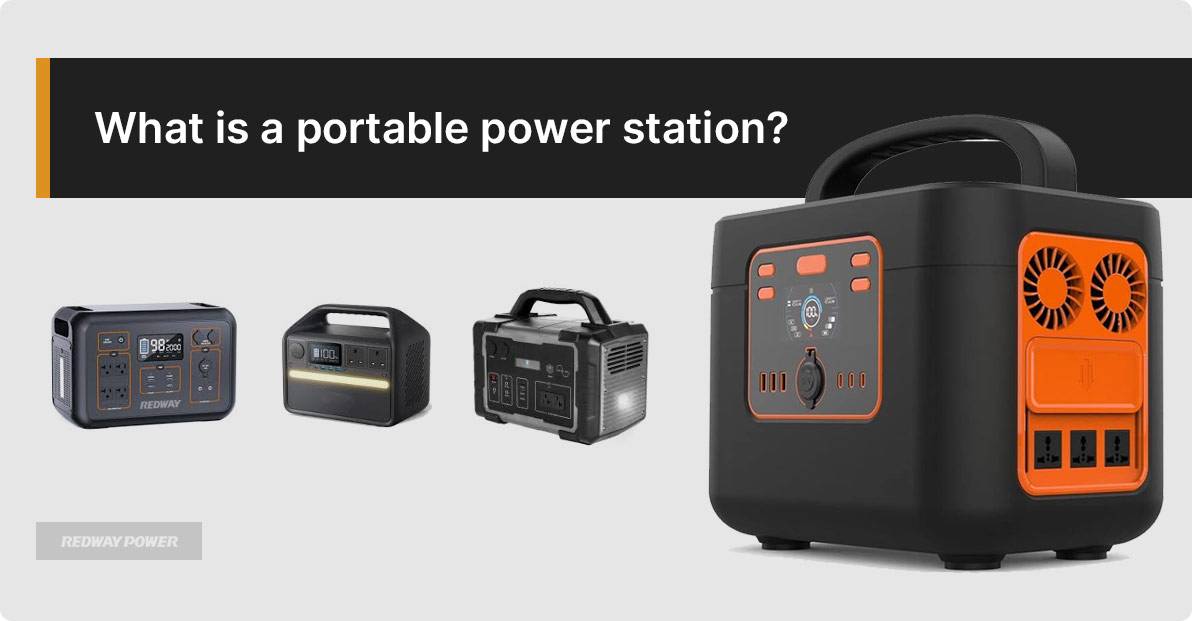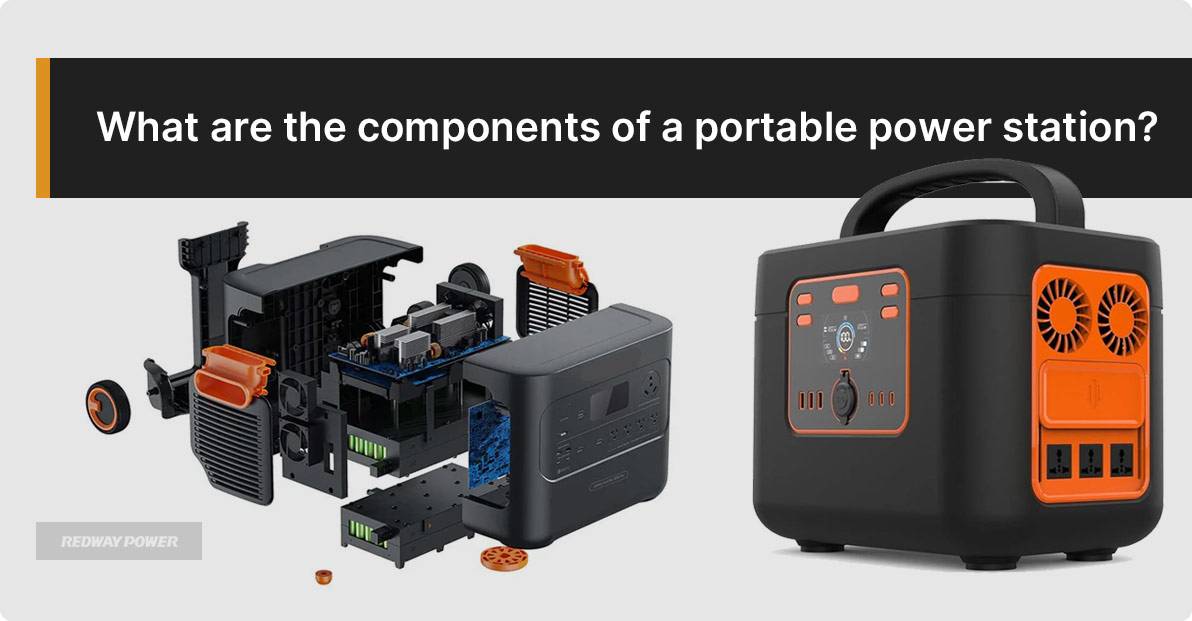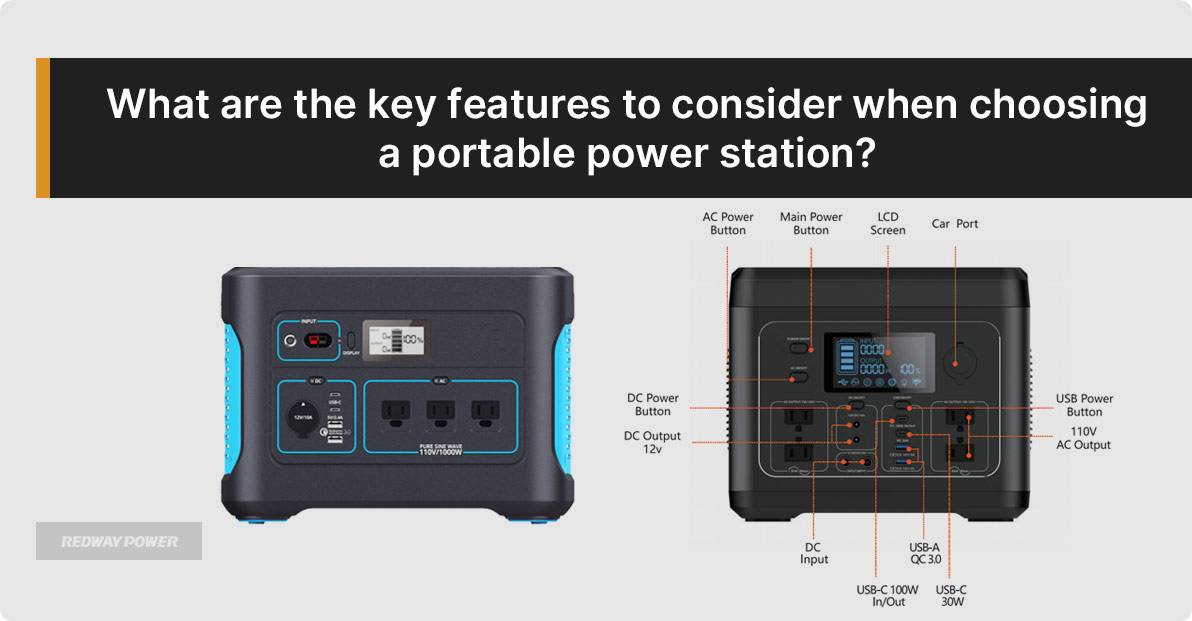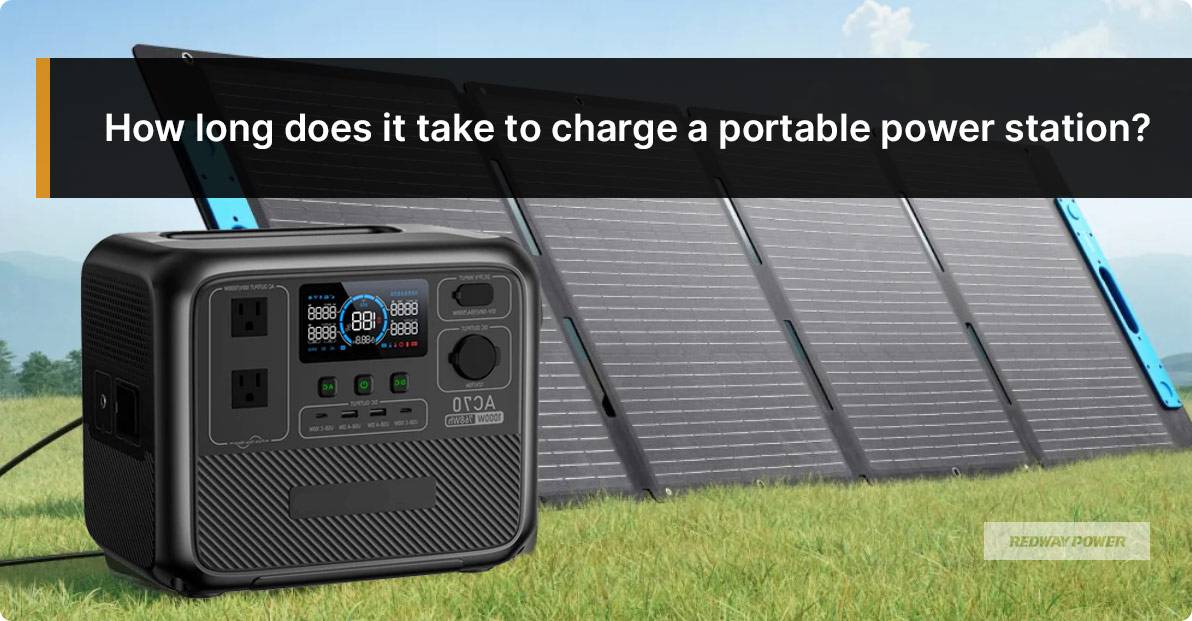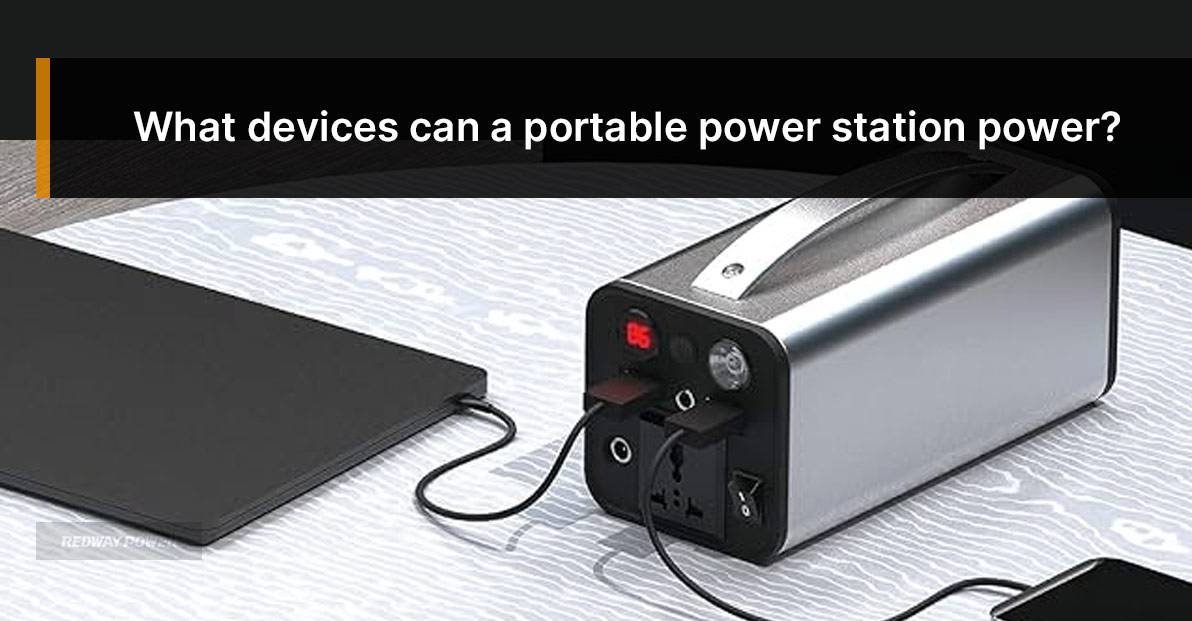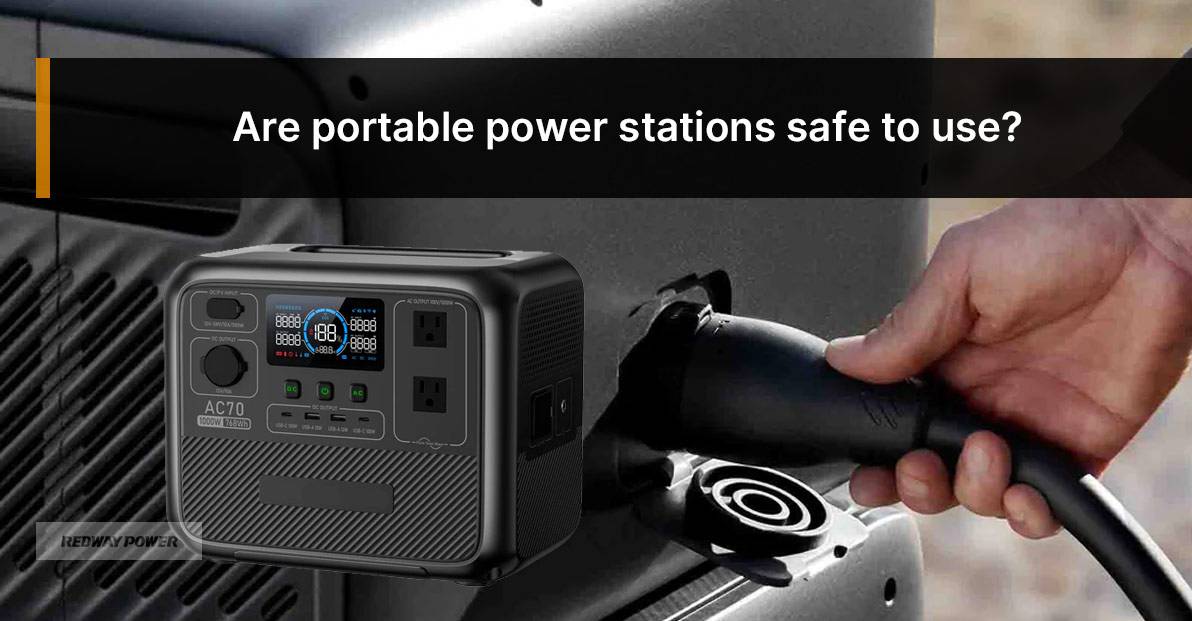Portable Power Station Factory Wholesale
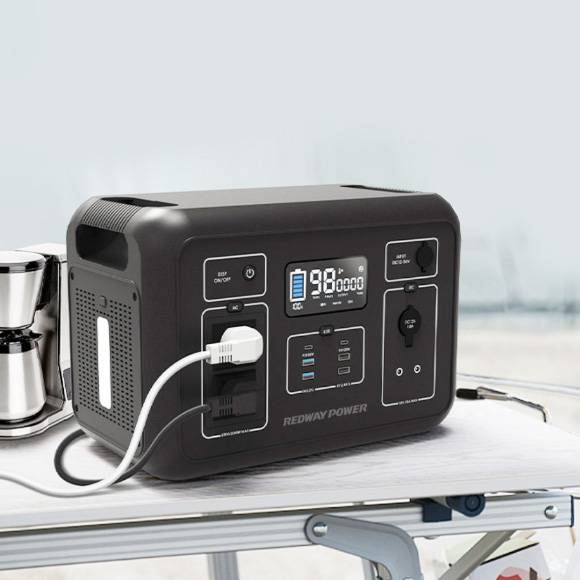
Portable Power Station, One-Stop Solution
Redway Portable Power Stations are eco-friendly, safe, and compact energy storage solutions that offer portable and sustainable green energy. Ideal for outdoor camping, aerial photography, expeditions, and rescue operations, they can also power various household appliances like TVs, fans, blow dryers, refrigerators, and even induction cookers and air conditioners, ensuring you always have the electricity you need.
Redway stands as the premier global manufacturer of LiFePO4 Portable Power Stations, tailored for outdoor applications such as camping. Leveraging high energy density, these stations excel in compact and efficient energy storage. LiFePO4 Portable Power Stations also prioritize safety with a reduced risk of thermal runaway.
Our expert battery team assists in selecting the optimal design and manufacturing process for your specific application. As a leading lithium battery manufacturer for OEM applications, Redway specializes in crafting, designing, and developing customizable LiFePO4 Portable Power Stations, supporting your branding with options for logo, design, size, and specifications.
Best Portable Power Station Manufacturer 2024
Looking for the best portable power stations in 2024? Look no further! These power stations are expert-tested and reviewed to ensure reliable performance. With high-capacity rechargeable batteries, they provide quiet and cost-effective power for various devices. Equipped with plug sockets, USB ports, and more, you can run your devices off the grid. Consider factors like weight, battery capacity, cost, charging options, battery chemistry, warranty, and safety when choosing the perfect portable power station for your needs.
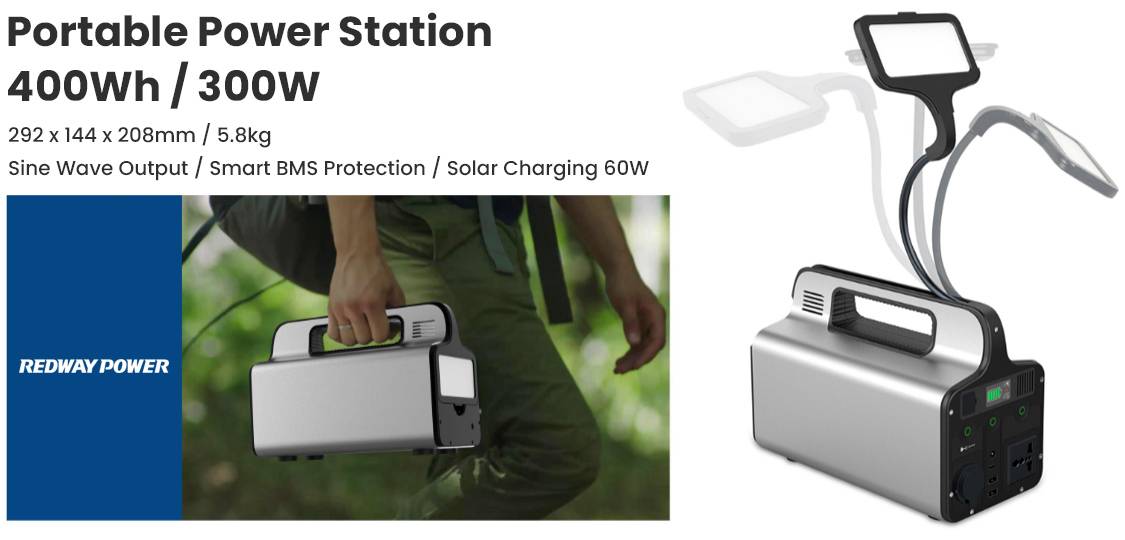
What is the wholesale price of lithium battery?
You can click contact us or phone call us. We will give you multiple options of price.
Is Redway Power a trading company or factory?
Redway Power is a company with its own factory, integrating research, development, production, and sales.
How about the quality of Redway's LiFePo4 Battery product?
Redway Power boasts over 12 years of experience in LiFePO4 battery production and is an authorized supplier for CATL and BYD.
Can you do an OEM/ODM project?
Yes, we have engineers available to assist in designing and developing any related products.
What’s your MOQ?
MOQ varies according to battery voltage and capacity.
What payment terms can we accept?
We accept TT/Paypal/West Union, etc.
Portable Power Station Knowledge
Discover everything you need to know about portable power stations. These high-capacity portable battery packs, also known as battery-powered inverter generators, provide a clean and renewable source of energy for charging devices and running appliances. From small units that fit in a backpack to larger units that power refrigerators and power tools, portable power stations are versatile and convenient. Recharge them via a wall outlet, car charger, or solar panel. Explore the benefits and applications of portable power stations for camping, outdoor activities, emergencies, and situations where traditional power sources are limited. Stay powered up with the knowledge of portable power station technology.
How to find a 36V charge controller for golf carts and solar panels?
- Research online: Start by searching online for reputable suppliers or retailers that specialize in solar panels and accessories. Look for websites or stores that offer a wide range of charge controllers and specifically mention compatibility with 36V systems.
- Check product specifications: Once you find potential charge controllers, carefully review the product specifications to ensure they are suitable for both golf carts and solar panels. Look for controllers that explicitly state compatibility with 36V systems and have the necessary features for your specific setup.
- Read customer reviews: Customer reviews and ratings can provide valuable insights into the performance and reliability of the charge controllers you are considering. Take the time to read reviews from other customers who have used the controllers to get an idea of their experiences.
- Seek expert advice: If you are unsure about which specific charge controller to choose, consider reaching out to experts in the field or consulting with professionals who specialize in solar panel installations. They can provide guidance based on their knowledge and experience.
What Ah spec is needed to recharge golf cart batteries in a day?
- Battery Capacity: The AH spec of a golf cart battery indicates its capacity and how much energy it can store. The larger the AH rating, the more power the battery can hold. To recharge golf cart batteries within a day, you would need batteries with higher AH ratings to ensure they can accommodate the energy required.
- Charging Rate: It’s important to consider the charging rate and the capabilities of the charger used. A higher charging rate can shorten the charging time, allowing you to recharge the batteries within a day. However, it’s crucial to ensure that the charger is compatible with the battery’s AH spec and can handle the charging process safely.
- Charger’s Capabilities: The charger’s capabilities, such as its voltage and amperage output, play a significant role in the charging time. A charger with higher output can deliver more power to the batteries, reducing the charging time. It’s essential to choose a charger that matches the AH spec of the batteries and provides the necessary charging capabilities.
How to connect a golf cart to a charge controller and AC inverter?
- Select the right charge controller: Choose a charge controller that is compatible with the golf cart batteries and the AC inverter. Look for a battery-to-battery or DC-to-DC charge controller specifically designed for this purpose. These charge controllers ensure efficient power flow between the batteries and the inverter.
- Install the charge controller: Follow the manufacturer’s instructions to install the charge controller. This typically involves connecting the positive and negative terminals of the golf cart batteries to the appropriate inputs on the charge controller. Ensure that the connections are secure and properly insulated.
- Connect the AC inverter: Once the charge controller is installed, connect the AC inverter to the output terminals of the charge controller. Ensure that the inverter is compatible with the power requirements of the devices you intend to use. Follow the manufacturer’s instructions for proper connection and ensure that the inverter is securely mounted.
- Proper wiring: Use suitable wiring and connectors to establish a secure and reliable connection between the golf cart, charge controller, and AC inverter. Follow the wiring diagram provided by the manufacturer or consult a professional if needed. Proper wiring ensures efficient power transfer and minimizes the risk of electrical issues.
What is a portable power station?
A portable power station is a device that provides off-grid electricity using a rechargeable battery. It stores power and can be used to power electronic devices on-the-go, just like a laptop or cell phone battery. Portable power stations offer a convenient and reliable solution for powering devices in various situations.
- Off-Grid Electricity: Portable power stations provide the ability to generate electricity without relying on the traditional power grid, making them useful in outdoor or remote locations.
- Rechargeable Battery: These devices feature a rechargeable battery that stores power, similar to the batteries found in laptops or cell phones.
- On-The-Go Power: Portable power stations are designed to be easily transported and used to power electronic devices while on the move, providing convenience and flexibility.
What are the components of a portable power station?
The components of a portable power station include the battery, charge controller, inverter, fan, power rating, features, size, and weight. The battery serves as the main storage component, while the charge controller regulates the charging process. The inverter converts DC power to AC power for electronic devices. The fan helps with cooling, and the power rating determines the maximum power output. Additional features, size, and weight vary depending on the model.
- Battery: The battery is the primary component of a portable power station, storing the electrical energy for later use.
- Charge Controller: The charge controller regulates the charging process, ensuring the battery is charged efficiently and safely.
- Inverter: The inverter converts the stored DC (direct current) power into AC (alternating current) power, which is compatible with most electronic devices.
- Fan: Some portable power stations have a built-in fan to help dissipate heat and maintain optimal performance.
- Power Rating: The power rating indicates the maximum power output that the portable power station can provide.
What are the key features to consider when choosing a portable power station?
When choosing a portable power station, key features to consider are capacity, power output, battery type, portability, number and type of outlets, charging options, and inverter power. These features determine the power storage, device compatibility, portability, and charging flexibility of the power station.
- Capacity: Determine the power storage capacity of the portable power station, often measured in watt-hours (Wh), to ensure it can meet your energy requirements.
- Power Output: Look at the power output capability of the station, which determines how many devices it can simultaneously run.
- Battery Type: Consider the type of battery used in the power station, such as lithium-ion or lead-acid, to understand its performance, lifespan, and charging characteristics.
- Portability: Assess the size, weight, and design of the power station to ensure it is portable and convenient for your intended use.
How long does it take to charge a portable power station?
The charging time of a portable power station varies depending on the power source. Wall outlets and generators offer the fastest charging, typically taking 2-4 hours to fully charge. Solar panels and vehicle outlets provide slower charging speeds, usually ranging from 5-15 hours for a full charge.
- Wall Outlets and Generators: These power sources provide the fastest charging times for portable power stations, typically taking around 2-4 hours to fully charge.
- Solar Panels and Vehicle Outlets: Charging a portable power station using solar panels or vehicle outlets takes longer compared to wall outlets and generators. It usually ranges from 5-15 hours for a full charge.
What devices can a portable power station power?
Portable power stations can power a range of devices, including household appliances like lights, fans, microwaves, radios, and small kitchen appliances. They are also capable of charging electronic devices such as tablets, laptops, portable gaming consoles, and more.
- Household Appliances: Portable power stations can power household appliances such as lights, fans, microwaves, radios, and even small kitchen appliances like electric stoves.
- Electronic Devices: They are also capable of charging electronic devices like tablets, laptops, portable gaming consoles, and more.
Are portable power stations safe to use?
While portable power stations are designed with safety features, there is still a risk of fire if used improperly. You should avoid overloading the unit, use compatible accessories, and keep flammable materials away from the unit to ensure safe usage.
- Safety Features: Portable power stations are designed with safety features to prevent accidents and ensure safe usage.
- Risk of Fire: Despite the safety features, there is still a risk of fire if the power station is used improperly or overloaded.
- Safety Guidelines: To ensure safe usage, it is important to avoid overloading the unit, use compatible accessories recommended by the manufacturer, and keep flammable materials away from the unit.






